
Emirates, the world's largest international airline, has made a remarkable return to the Paris Airshow after more than 15 years, showcasing its latest aircraft, the Airbus A350, at the prestigious event held at Le Bourget, France. The airline is participating in the 55th edition of the International Paris Airshow, which runs until June 19, highlighting its commitment to innovation and advancements in air travel.
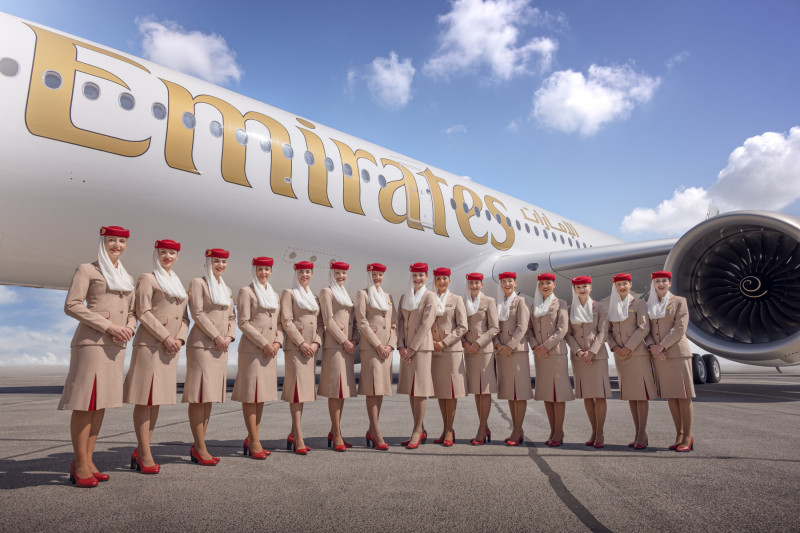
Visitors to the airshow can explore Emirates’ upgraded offerings, featuring enhanced Business Class and Premium Economy cabins, as well as a sleek and spacious Economy Class. The A350 represents a significant leap in design and technology, incorporating the airline’s next-generation cabin features that promise an elevated travel experience.
Sir Tim Clark, President of Emirates Airline, expressed enthusiasm about the airline's presence at the airshow, stating, “We’re pleased to be at the Paris Airshow, showcasing the very best of air travel on one of the most important platforms in the aerospace exhibition calendar. Our return to France’s premier aerospace event underscores Emirates’ dedication to supporting the country's aviation sector, not only through our operational activities but also via sustained investments across the aerospace supply chain.”
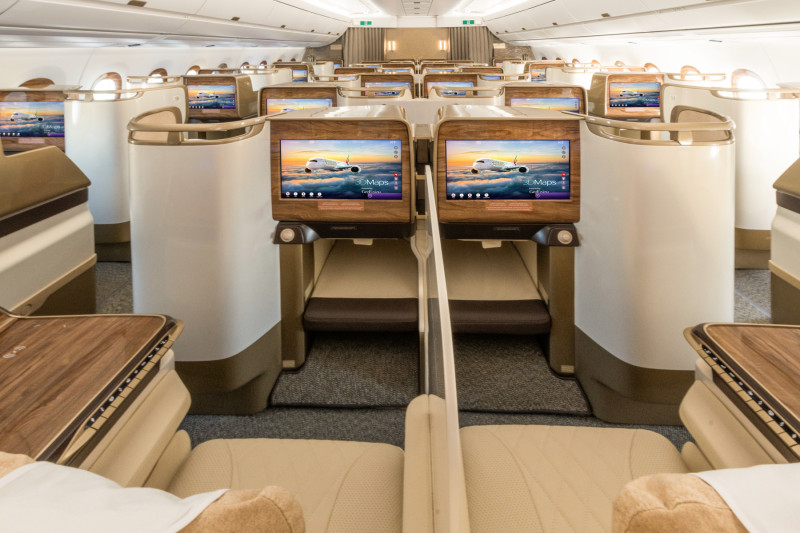
Emirates operates 21 weekly flights to Paris, including three daily A380 flights, as well as daily A380 services to Nice and a daily A350 flight to Lyon. Notably, Emirates is the first and only international airline to operate an A380 to Nice Côte d'Azur Airport.
For over three decades, Emirates has played a pivotal role in bolstering France's aviation industry and enhancing trade and tourism. The airline's substantial investments in France have led to significant job creation within Airbus, Safran, Thales, and other sectors of the aerospace supply chain. Since its establishment in 1985, Emirates has invested over €114 billion (approximately $130 billion) to acquire 254 Airbus aircraft, including the A300, A310, A330, A340-300, A340-500, A380, and the newly introduced A350.
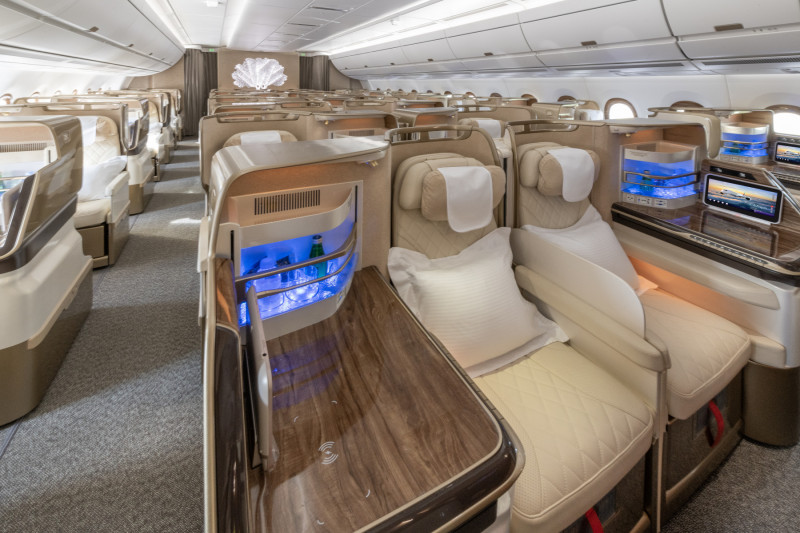
As a key customer for French aerospace manufacturers, Emirates sources various components from France, including Michelin tyres, Safran aircraft parts, and Thales avionics systems. In 2023, the airline announced contracts with Safran valued at over €1 billion, which includes a significant deal for the latest generation of seats for its Airbus A350 fleet, Boeing 777X-9, and existing Boeing 777-300ER aircraft. Additionally, Emirates has invested over €322 million in Thales’ AVANT Up system for its A350s.
Emirates SkyCargo provides essential cargo capacity for customers in France, operating weekly flights between Dubai World Central (DWC), Paris Charles de Gaulle (CDG), and Lyon Saint-Exupéry airports. The UAE stands as France’s largest export partner in the Middle East, contributing over €189 million ($215 million) annually to the French economy through various operational expenditures. This includes costs for fuel, over-flight charges, in-flight catering, aircraft landing fees, crew layovers, and advertising.
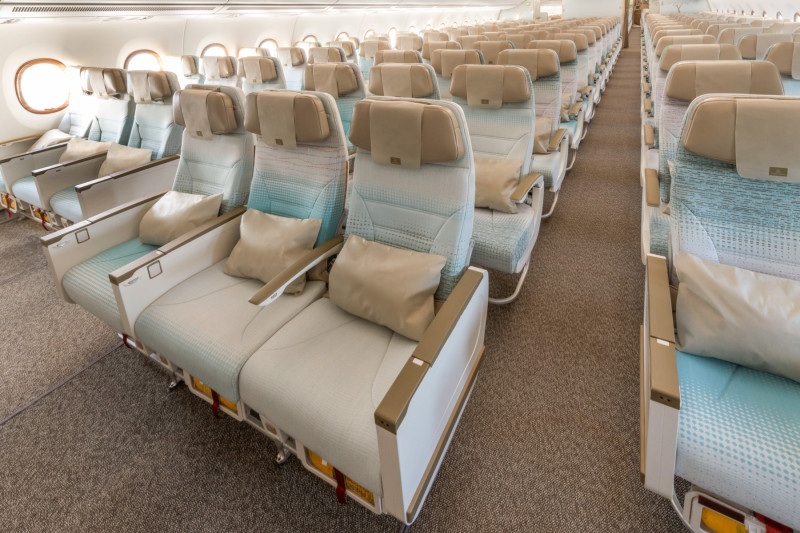
Furthermore, France serves as Emirates’ top global source for wines, with Bordeaux supplying 58% of the red wine served in the airline's First and Business Class cabins. The airline also contributes to local economies by sourcing gourmet food products and luxury goods from French suppliers, enhancing the overall travel experience for passengers.
At the Paris Airshow, the Emirates A350 on display features three cabin classes: 32 lie-flat seats in Business Class, 21 Premium Economy seats, and 259 generously spaced Economy Class seats. Attendees can witness the airline's enhanced 'fly better' experience, which includes spacious interiors with high ceilings and wider aisles, a next-generation Business Class layout with a 1-2-1 seat configuration, advanced in-flight entertainment systems, improved cabin lighting, faster Wi-Fi, and enhanced seat ergonomics.
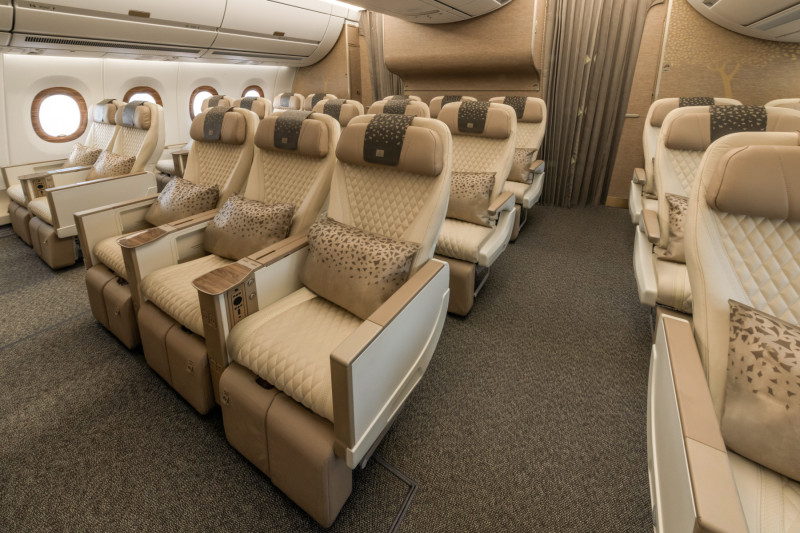
The A350 is equipped with the latest noise-reducing technologies and fuel-efficient engines, making it one of the most environmentally friendly aircraft in Emirates' fleet. Its design incorporates lighter materials and aerodynamic improvements that contribute to lower carbon emissions, aligning with the airline's commitment to sustainability.
By the end of this year, the Emirates A350 is set to serve 17 destinations, with the airline having welcomed seven A350 aircraft and an additional 58 units expected to join the fleet in the coming years. This expansion reflects Emirates' strategy to enhance its global network and meet the growing demand for air travel, ensuring passengers enjoy unparalleled comfort and service.

 (1).jpg)

 (1).jpg)

.jpg)
.jpg)

.jpg)
 (1).jpg)
 (1).jpg)
.jpg)
.jpg)
.jpg)

.jpg)

 (1).jpg)
.jpg)





.jpg)
.jpg)
.jpg)

.jpg)




.jpg)


.jpg)




.jpg)
.jpg)
.jpg)
.jpg)
.jpg)


.jpg)
.jpg)
 (1).jpg)
.png)
.jpg)
.jpg)